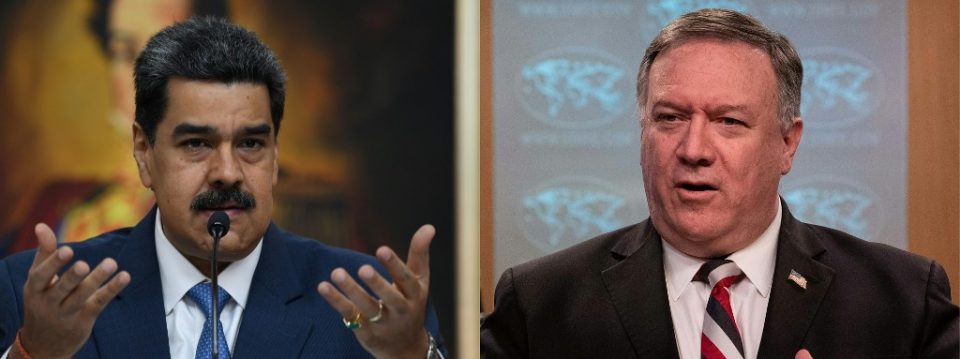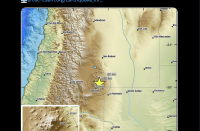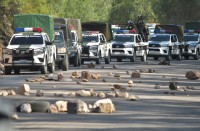
by Shaun TANDON
Agence France Presse
BOA VISTA, Brazil (AFP) — US Secretary of State Mike Pompeo used a South American tour Friday to tell Venezuelan President Nicolas Maduro he “has to leave,” drawing a furious accusation of “war-mongering” from the leftist leader.
Touring a refugee center in the town of Boa Vista, Brazil, on the border with Venezuela, Pompeo emphasized the plight of the nearly five million Venezuelans who have fled the country’s economic meltdown under Maduro.
“Those people I talked to today are desperate to return home,” he said of the refugees being processed at the center — among the estimated 260,000 Venezuelans who have fled to Brazil.
“They want what all human beings want — dignity, they want a democratic, peaceful, sovereign Venezuela to call home, one where they and their children can find jobs.”
He called Maduro “a leader who’s destroyed his own country, a man-made disaster of massive proportions,” as well as “a drug trafficker” — referring to charges the US Justice Department filed against Maduro and his inner circle earlier this year.
“We know that the Maduro regime has decimated the people of Venezuela, and that Maduro himself is an indicted narcotics trafficker. That means he has to leave,” Pompeo said earlier in Guyana during a joint press conference with President Irfaan Ali.
Maduro responded with an angry salvo of his own.
“Mike Pompeo is on a war-mongering tour against Venezuela, but it has backfired on him… and he has failed in all his attempts to get the governments of the continent to organize themselves in a war against Venezuela,” he said on state TV.
Venezuela, home to the world’s biggest oil reserves, has seen its economy shrink by more than half under Maduro, the political heir to late leftist firebrand Hugo Chavez after his death in 2013.
But Maduro has so far survived attempts to oust him, including when National Assembly speaker Juan Guaido declared himself acting president in January 2019, claiming Maduro had stolen the 2018 election.
In Brazil, Pompeo also toured a processing center for refugees and a US-funded soup kitchen run by a local Catholic church for hungry and homeless Venezuelans living on the streets of Boa Vista.
He announced another $348 million to help Venezuelan refugees and the countries hosting them, bringing total US contribution to more than $1.2 billion.
He later met with far-right President Jair Bolsonaro’s foreign minister, Ernesto Araujo.
The two reiterated their support for Guaido, who is recognized as president by around 50 countries, led by the United States.
Backing Guaido as president “doesn’t just mean supporting a courageous young leader, it means supporting the Venezuelan constitution and its legitimate authorities,” said Araujo at a joint news conference.
– Iran oil tankers –
The US Justice Department has put a $15-million bounty on Maduro’s head, accusing him of overseeing massive drug trafficking into the United States.
However, Maduro has steadfastly refused to back down and retains the support of the armed forces, as well as key allies in Russia and Iran.
Iran has clashed with the United States over its attempts to ship gasoline to Venezuela, whose own refining capacity has collapsed so badly it now needs to import gasoline.
Last month, the United States confirmed it had seized the cargo of four Venezuela-bound tankers sent by Iran.
Responding to reports that three more tankers of Iranian fuel are now en route, Pompeo did not say whether the United States would attempt to seize them.
“But, as I think the world has seen, we’ve stopped previous shipments from coming to Venezuela,” he said.
“We do our best to track each of them and deny as many of them the capacity to create wealth for Nicolas Maduro and his thugs.”
After his Brazil stop, Pompeo was due to travel to Colombia, whose conservative government is also closely aligned with Washington on the Venezuela crisis.
He began his three-day South American trip on Thursday in Suriname, and will conclude it this weekend with a stop at an Evangelical mega-church in Dallas, Texas.
© Agence France-Presse







